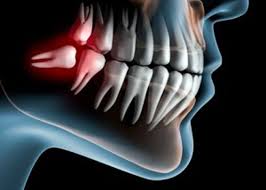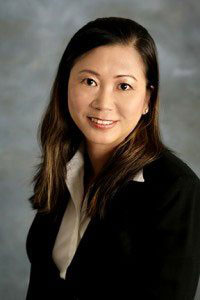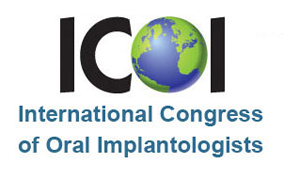Wisdom Teeth Extraction
The average adult mouth can comfortably hold 28 teeth, which makes it challenging when four more wisdom teeth—also called “third molars”—try to fit in. Wisdom teeth typically grow in by the age of 18, and when there isn’t space in the mouth to accommodate them it can be a painful and even dangerous process.
Why Must Wisdom Teeth Be Removed?
 When there is room for wisdom teeth in the mouth—and they are able to grow in proper alignment surrounded by healthy gum tissue—they do not have to be removed; however, this is rarely the case. For most adults, wisdom teeth must be extracted because they are unable to erupt properly in the mouth. Wisdom teeth that need to be extracted can:
When there is room for wisdom teeth in the mouth—and they are able to grow in proper alignment surrounded by healthy gum tissue—they do not have to be removed; however, this is rarely the case. For most adults, wisdom teeth must be extracted because they are unable to erupt properly in the mouth. Wisdom teeth that need to be extracted can:
- Grow sideways
- Emerge partially from the gum
- Remain impacted beneath the gum and bone
Problematic wisdom teeth that are not removed in a timely manner can:
- Lead to infection in the gum line that may create illness, pain, stiffness, and swelling
- Move or place pressure on other teeth, which may cause crowding, misalignment, and discomfort
- Destroy jawbone and healthy teeth when tumors or cysts form around impacted wisdom teeth
Early wisdom tooth removal is frequently recommended to prevent serious complications (like those listed above) from developing and minimize risks associated with the extraction procedure.
How Do I Care for Myself Following Wisdom Tooth Extraction?
- Do not disturb the wound – disturbing the wound may invite irritation, infection, and/or bleeding
- Chew on the opposite side of your mouth for the first 24 hours or stick to very soft or liquid foods that do not require chewing.
- Do not smoke for at least 12 hours – smoking promotes bleeding and interferes with healing.
- Do not spit or suck through a straw – these actions can promote bleeding and may dislodge the blood clot, likely resulting in an uncomfortable dry socket.
How Do I Control Bleeding?
If the area is not closed with stitches, a pressure pack made of folded sterile gauze pads will be placed over the socket. It is important that this pack stay in place to control bleeding and to encourage clot formation. The gauze is usually kept in place for 30 minutes. If the bleeding has not stopped once the original pack is removed, place a new gauze pad over the extraction site.
How Do I Control Swelling?
After surgery, some swelling is to be expected. This can be controlled through the use of cold packs, which slow the circulation. A cold pack is usually placed at the site of swelling during the first 24 hours in a cycle of 20 minutes on and 20 minutes off.
After the first 24 hours, it is advisable to rinse with warm saltwater every two hours to promote healing. (one teaspoon of salt to eight ounces of warm water).
Will I Require Medication for Pain Relief?
Anti-inflammatory medications, such as Aspirin or Ibuprofen, are used to control minor discomfort following oral surgery. Stronger analgesics may be prescribed by our dentist if the patient is in extreme discomfort.
What Can I Eat or Drink?
A soft diet may be prescribed for the patient for a few days following surgery.
Additional Information About Wisdom Teeth Extraction
Following the removal of your wisdom teeth it is important that you call our office if any unusual bleeding, swelling or pain occurs. The first 6-8 hours after the extraction are typically the worst, but are manageable with ice packs and non-prescription pain medication. You should also plan to see Dr. Shen approximately one week later to ensure everything is healing well.
It is very important to talk to Dr. Shen about the extraction procedure, risks, possible complications and outcomes of the removal of these teeth. The actual extraction may be done by Dr. Shen or it may be referred to an oral surgeon, who is a specialist. This decision is based on the dentist’s preference and the unique features of each individual case. If you are unsure about whether or not to proceed with the treatment suggested by Dr. Shen , it is a good idea to get a second opinion. If you decide after consulting with Dr. Shen to not have any teeth extracted, they should be monitored at every dental visit.
For more information, please contact our office. Our friendly and knowledgeable team is happy to answer questions and to help you schedule a free consultation with Dr. Shen.*
 Dr. Shen received her Bachelor’s degree in Biochemistry at UC Berkeley and later obtained her Doctorate degree from UCLA School of Dentistry. She has completed rigorous extensive residency at VA Palo Alto Hospital. Since then, Dr. Shen worked at Valley Medical Center and started her private practice in Mountain View.
Dr. Shen received her Bachelor’s degree in Biochemistry at UC Berkeley and later obtained her Doctorate degree from UCLA School of Dentistry. She has completed rigorous extensive residency at VA Palo Alto Hospital. Since then, Dr. Shen worked at Valley Medical Center and started her private practice in Mountain View.

